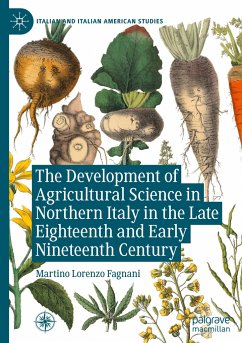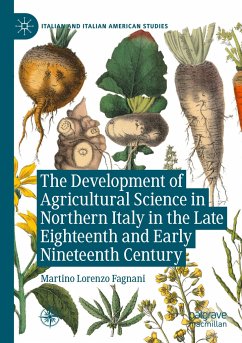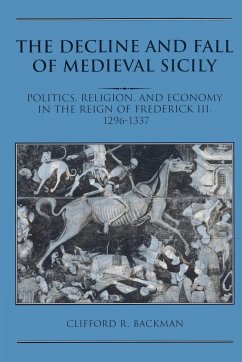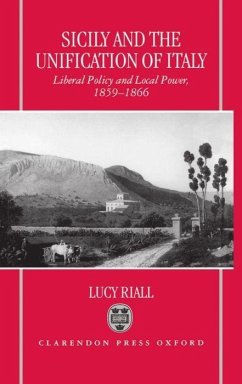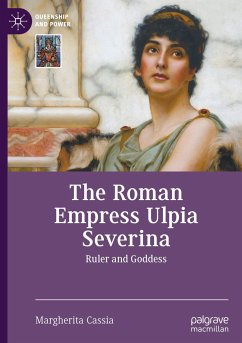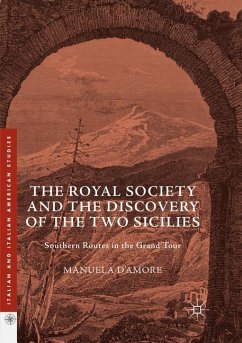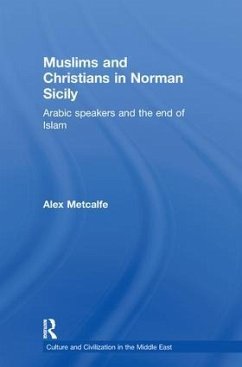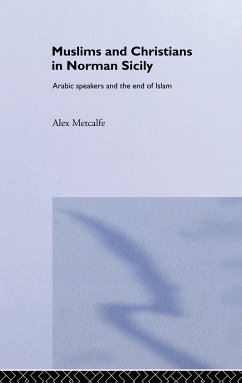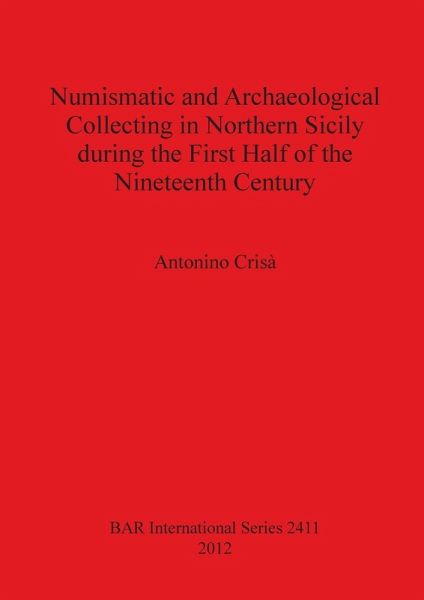
Numismatic and Archaeological Collecting in Northern Sicily during the First Half of the Nineteenth Century
Versandkostenfrei!
Versandfertig in 1-2 Wochen
73,99 €
inkl. MwSt.

PAYBACK Punkte
37 °P sammeln!
This research examines the archaeological protection system and antiquarian collecting in northern Sicily, in particular in the coastal strip from Palermo to Messina during the first half of the nineteenth century. Substantially, the most represented historical period is the Kingdom of the Two Sicilies (1814-1861). The strength of the research, which is relevant to the history of Sicilian coin collecting and archaeology, is a substantial set of materials, discovered at the State Archive of Palermo and Fondazione Mandralisca of Cefalù. It comprises 141 archival records, which have been transcr...
This research examines the archaeological protection system and antiquarian collecting in northern Sicily, in particular in the coastal strip from Palermo to Messina during the first half of the nineteenth century. Substantially, the most represented historical period is the Kingdom of the Two Sicilies (1814-1861). The strength of the research, which is relevant to the history of Sicilian coin collecting and archaeology, is a substantial set of materials, discovered at the State Archive of Palermo and Fondazione Mandralisca of Cefalù. It comprises 141 archival records, which have been transcribed, ordered and studied thoroughly. Chapter 1 contains a general introduction about Sicilian archaeological protection systems and antiquarianism from the end of the eighteenth century to the post-Unification period. Chapter 2, based mainly on archival records, focuses on Palermo, the most important city of the Bourbon Sicily, where authorities managed and protected island antiquities. Sections describe the collections of Tommaso Gandolfo and Antonino Astuto, acquired by the Museum of the University, and the discovery of coins at Giarre in 1832. Enrico Pirajno’s activities at Cefalù and Lipari are also examined in this chapter – he is considered one of the most skilful Sicilian antiquarians during the first half of the nineteenth century. The last section reports a significant numismatic discovery in the Cefalù Valley in 1824. Chapter 4 describes Tindari, where the Sciacca della Scala family led antiquarian research from the late eighteenth century until the late nineteenth century. Their collection of finds, kept in a private museum at the Castle of Scala di Patti is now lost. Chapter 5 discusses Giuseppe Grosso Cacopardo, the well-known coin collector from Messina (including the recent discovery of a special ‘export’ of ancient coins, found in Messina in 1845, to the King of Bavaria). The work’s conclusion offers a final historical reconstruction of the numismatic and archaeological collecting in northern Sicily, according to new and substantial records. Five appendices report archival documentation, arranged in thematic sections.





